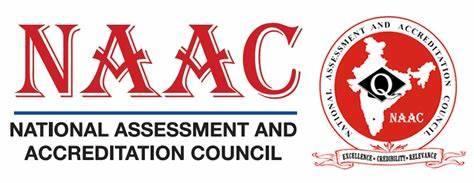India has one of the largest and most diverse education systems in the world. Privatization, widespread expansion, increased autonomy and introduction of Programmes in new and emerging areas have improved access to higher education. At the same time, it has also led to widespread concern about the quality and relevance of higher education. To address these concerns, the National Policy on Education (NPE, 1986) and the Programme of Action (PoA, 1992) spelt out strategic plans for the policies and advocated the establishment of an independent National accreditation agency. Consequently, the NAAC was established in 1994 as an autonomous institution of the UGC with its headquarters in Bengaluru. The mandate of NAAC as reflected in its vision statement is to make quality assurance an integral part of the functioning of Higher Education Institutions (HEIs).
The global education development agenda set in Goal 4 (SDG4) of the 2030 Agenda for Sustainable Development, adopted by India in 2015 aims to ensure inclusive and equitable quality education and promote lifelong learning opportunities for all by 2030. Such a goal will require the entire education system to be reconfigured to support and foster learning so that all of the critical targets and goals (SDGs) of the 2030 Agenda can be achieved. At the same time, the world is undergoing rapid changes in creating knowledge as a result of various scientific and technological advances, such as the rise of big data, machine learning, and artificial intelligence. Whereas there will be a growing demand for STEM programs, humanities and art. Also, with the quickly changing employment sector, and global ecosystem, it is important that children not only learn but learn how to learn. Ideally, education must move towards learning about how to think and solve problems, how to be creative and multidisciplinary, and how to innovate and adapt. Education must be more experiential, holistic, integrated, inquiry-driven, discovery-oriented, learner-centred, discussion-based, flexible, and enjoyable. Education must build character, and enable learners to be ethical, rational, compassionate, and caring. The aim must be for India to have an education system by 2040 that is second to none, with equitable access to the highest-quality education for all learners regardless of social or economic background. This National Education Policy 2020 aims to address the revision and revamping of all aspects of the education structure, including its regulation and governance, to create an education ecosystem that is aligned with the goals defined by India including SDG4.
For more details on NAAC, please refer to: http://naac.gov.in/index.php/en/

Internal Quality Assurance Cell
Indian Institute of Space Science and Technology
Valiamala P.O., Thiruvananthapuram - 695 547
Kerala, India.